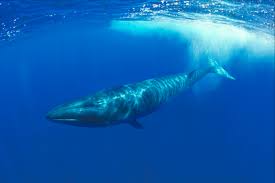中文词源
whale 鲸
来自古英语hwael,大型海洋生物,鲸,海象等,后用于指鲸。
英语词源
- whale
-
whale: [OE] Whale comes from a prehistoric Germanic *khwal-, which also produced Swedish and Danish hval and the wal- of German walfisch ‘whale’. The expression a whale of, meaning ‘no end of’, originated in the USA towards the end of the 19th century.
- whale (n.)
- Old English hwæl "whale," also "walrus," from Proto-Germanic *hwalaz (cognates: Old Saxon hwal, Old Norse hvalr, hvalfiskr, Swedish val, Middle Dutch wal, walvisc, Dutch walvis, Old High German wal, German Wal), from PIE *(s)kwal-o- (cognates: Latin squalus "a kind of large sea fish"). Phrase whale of a "excellent or large example" is c. 1900, student slang. Whale-oil attested from mid-15c.
- whale (v.2)
- "beat, whip severely," 1790, possibly a variant of wale (v.) "to mark with 'wales' or stripes" (early 15c.), from wale (n.). Related: Whaled; whaling.
- whale (v.1)
- "pursue the business of whale-fishing," 1700, from whale (n.). Whale-fishing is attested from 1570s.
权威例句
- 1. The blue whale is the largest living thing on the planet.
- 蓝鲸是地球上体型最大的生物。
- 2. I had a whale of a time in Birmingham.
- 我在伯明翰度过了一段非常快乐的时光。
- 3. Norwegian whalers said yesterday they had harpooned a female minke whale.
- 挪威的捕鲸人说昨天他们用捕鲸叉捕获了一头雌性小须鲸。
- 4. Whale-watching has become a growth leisure industry.
- 观鲸业已经成为一个快速发展的休闲产业。
- 5. A whale is a fish. True or false?
- 鲸鱼是鱼,对还是错?

